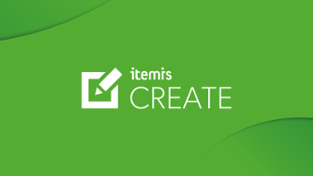 Information: YAKINDU Statechart Tools Is Now itemis CREATE
Information: YAKINDU Statechart Tools Is Now itemis CREATE
The YAKINDU team is happy to announce YAKINDU Statechart Tools 2.8.0 and the first release candidate of the Professional Edition!
The product bundle of SCT is now shipped with Eclipse Neon.1 as underlying platform. However, SCT does not require Neon to be installed. You can still update the SCT plugins with a Mars based IDE or the previous SCT bundle. You can download the current version of YAKINDU Statechart Tools from our download page where you also find the links to our update sites.
With YAKINDU Statechart Tools PRO RC1 we made a huge step forward towards our upcoming release in December 2016. Especially the Deep C Integration has been extended to support further C concepts, like macro definitions, arrays and pointers.
Support for macro definitions
Macro definitions declared in a C header file via the #define keyword are now accessible in the statechart. There are two kinds of macro definitions, leading to different interpretations in the context of state machines:
- Constant definitions, e.g. #define PI 3.14, are translated into const properties. They can be used within a statechart just like normal variables, but are not changeable during a simulation.
- Parameterized macros, like #define MIN(x,y) ((x<y) ? x : y), are translated into operations. They can be used within a statechart just like normal operations, but are not interpreted during a simulation.
Check out the full documentation about macros.
Support for pointer types
Pointers are a key concept of the C programming language. YAKINDU Statechart Tools’ Deep C Integration is making C pointers available to you in your statechart. In particular you can
- declare pointer variables,
- access external pointers from included header files,
- assign a pointer to a pointer variable of the same type,
- retrieve the pointer pointing to a given variable,
- pass pointers as parameters to functions, and
- receive a pointer as a functions return value.
Check out our documentation regarding pointers.
Support for arrays
Unlike other variables, arrays are not defined in a statechart’s definition section, but on the C side in header files. Importing a C header containing an array definition makes the array available in your statechart.
While YAKINDU Statechart Tool’s Deep C Integration provides mechanisms for accessing individual elements of an existing array, arrays must be allocated statically or dynamically in C.
Check out our documentation regarding arrays.
Performance and stability
The Professional Edition of YAKINDU Statechart Tools also profited from several performance improvements and bug fixes in the open source code. Especially validation performance scales better with larger models now which enhances the modeling experience drastically. In case the validation is still too slow for your state machine, you can disable the live validation to validate only on model saving.
Ready – Set – Pro!
YAKINDU Statechart Tools Professional is now ready to pre-order! The final release is planned for december 2016. If you pre-order now, you get a 15 % discount on the regular licence fee!


Comments